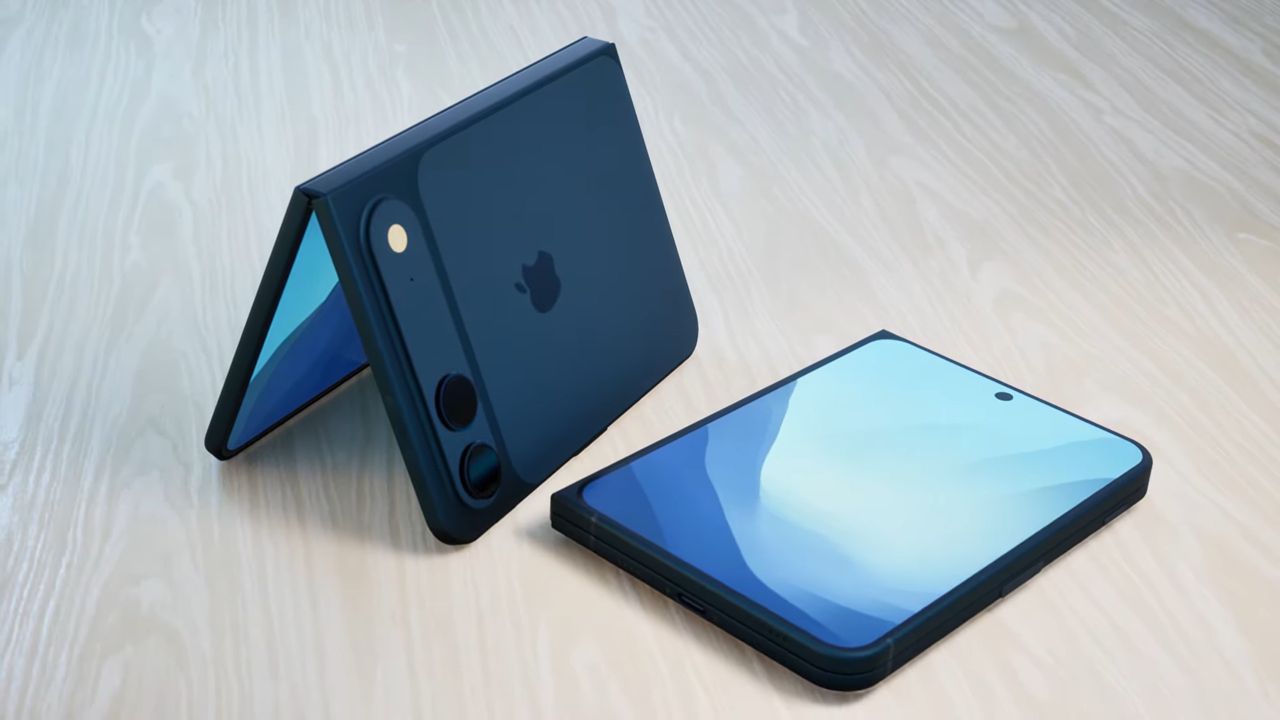
Updated August 6
• Don't expect the iPhone Flip to be a major hardware innovator. Not for its first generation, at least
• A new leak could reveal how big iPhone Fold screen sizes actually are
• Apple could add one of its biggest ever batteries to iPhone Fold
• iOS 27 could be developed specifically for foldable phones
• Apple might have finally picked a display partner for its foldable screens — Samsung
After years of sitting on the foldable phone sidelines, Apple could be preparing to launch a device of its own, which rumormongers are calling either the iPhone Flip or iPhone Fold. Whatever name the device ultimately debuts with, we've got a clearer picture than ever about what Apple could be planning on the foldable front.
A foldable iPhone is certainly long overdue, with everyone from Samsung to Google to Motorola already vying to offer the best foldable phones. Apple appears to be biding its time, though an influx of recent rumors has us thinking that plans for an iPhone Flip are starting to take shape.
We likely won't see such a phone this year, as even the most optimistic rumors point to a 2026 launch for the iPhone Flip. But enough details have leaked to give us some idea of how Apple could take on the likes of the Galaxy Z Fold 7 or Google Pixel 10 Pro Fold once a foldable iPhone does appear.
Everything we've heard about the potential iPhone Flip is summarized below so you can get a top-level view of the state of the first foldable iPhone.
What kind of foldable is Apple building?
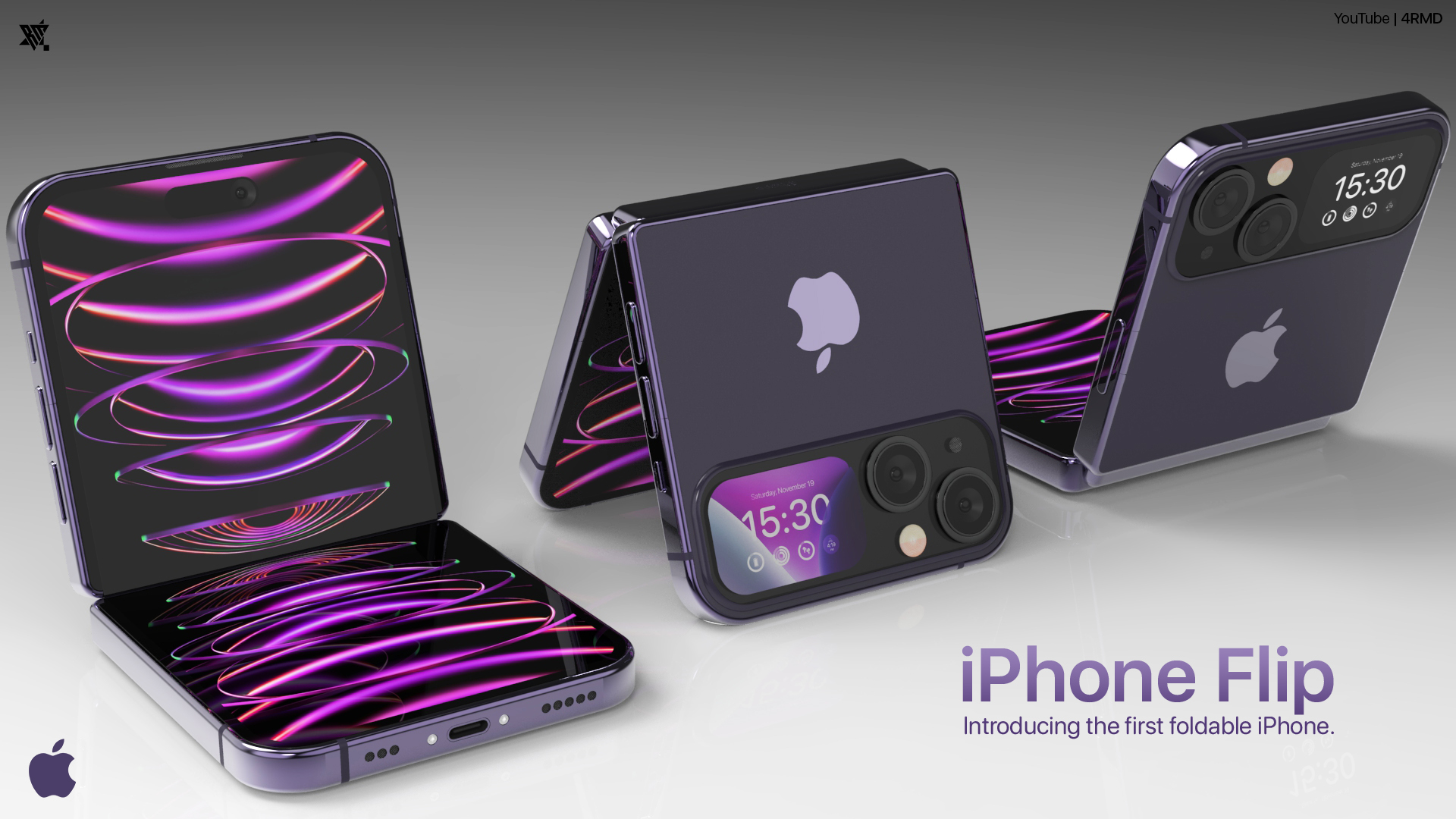
The first question to tackle with a foldable iPhone is what form it will take. Right now, foldables seem to come in two styles — a book-shaped phone that opens up to reveal a larger display inside and a design that equips the flip phones of an earlier generation with a foldable screen.
Most of the leaks around a foldable iPhone call it the iPhone Flip, which would indicate a clamshell design similar to the flip-phones styles we have with the Galaxy Z Flip 7 and Motorola Razr 2025 Ultra.
However, reports have firmly settled on Apple building a notebook-style phone much like the Galaxy Z Fold 7 — and these reports even cite specs that back up that claim. This is why you might hear the name iPhone Fold being used to refer to this foldable iPhone.
We're calling the phone the iPhone Flip for now, just to stay consistent with a lot of early rumors. But keep in mind that the ultimate name may take on another form altogether.
For example, Apple calls the successor to the iPhone SE 2022 the iPhone 16e — which makes more sense to better fit with the other iPhone 16 releases. The foldable iPhone could follow a similar naming convention once it eventually appears.
iPhone Flip release date speculation
Given how long foldable iPhone rumors have been circulating, any release date has been a moveable target.
At this stage, the iPhone Flip isn't expected to be part of the iPhone 17 launch this fall, with Apple rumored to be releasing a standard iPhone, two iPhone 17 Pro models and an ultrathin iPhone 17 Air. That doesn't leave a lot of room for a foldable.
To that end, analysts now seem to be zeroing in on 2026 as a possible launch date. Specifically, analyst Jeff Pu has forecast a 2026 release for two Apple foldables — a tablet and a phone. While Pu has frequently adjusted launch date predictions, that 2026 release is backed up by a report from Bloomberg's Mark Gurman.
The launch of an iPad Fold has reportedly been pushed back to 2028 at the earliest, thanks to manufacturing issues. But the consensus is that the foldable iPhone is still coming next year. Especially now that prototyping has reportedly begun, and the Samsung-made foldable displays have apparently starting production already.
iPhone Flip price: What would it cost?
While pricing for the iPhone Flip, or iPhone Fold, has been a topic of much discussion, reports are slowly setting on a rough price tag — somewhere around $2,000.
Which is quite expensive in the grand scheme of things, especially when the iPhone 16 Pro Max currently starts at $1,199. However in comparison with other foldable phones, including the Galaxy Z Fold 7's newly-increased $1,999 price tag, it's not that extreme. Especially compared to past reports, speculating the phone could cost between $2,100 and $2,300.
While there is some speculation that the iPhone Flip could be cheaper than the Galaxy Z Fold 7, and under $2,000, later reports have doubled down on the $2,000 figure.
iPhone Flip: Design and display
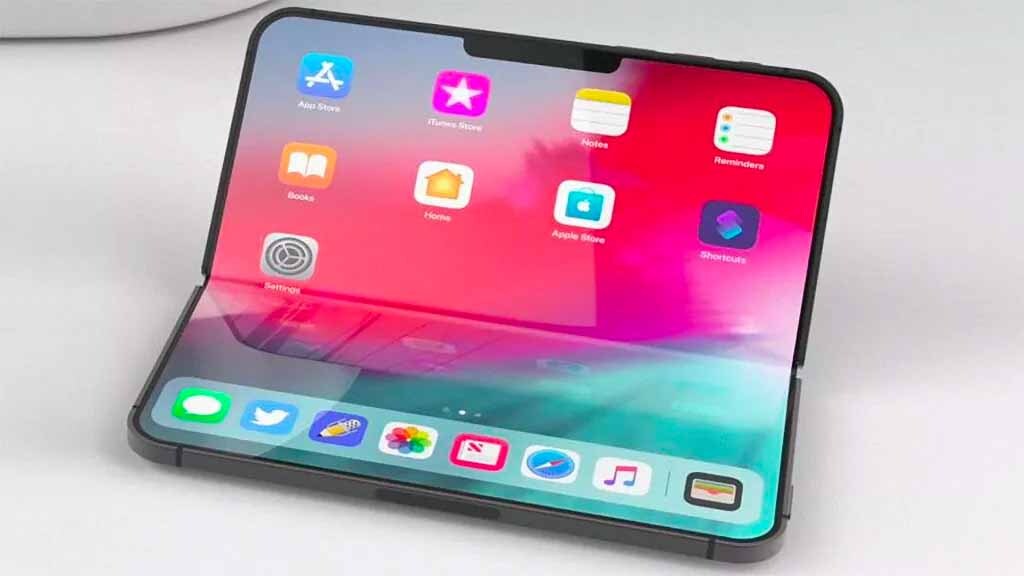
Years of patents filed by Apple have teased potential designs for a foldable device out of Cupertino. But as we get closer to a rumored launch date, the end design seems to be coming into focus.
As we've noted, reports from Mark Gurman in Bloomberg indicate that Apple is focusing on a notebook-style design, with other news sites backing up that claim. We've even got an early indication of some of the specs Apple has in mind for its foldable.
In March 2025, analyst Ming-Chi Kuo posted his forecasted iPhone Flip specs, predicting a 7.8-inch main display for the phone when it's opened. (For context, the Galaxy Z Fold 6 gives you a 7.6-inch display while the Pixel 9 Pro Fold from Google gives you 8 inches of screen space.)
That same report indicates that the iPhone Flip would offer a 5.5-inch cover display, which is more compact than what you'd find on competing phones. That claim's consistent with other reports indicating a 4:3 aspect ratio that would have the iPhone Flip resembling an iPad.
Digital Chat Station recently presented similar specs, claiming that the cover display could be 5,.5-inches while the interior foldable display could be as large as 7.7-inches.
It's also reported that Apple and Samsung have developed a new kind of foldable display that integrates the touch sensor directly into the panel — rather than as a separate layer. This in-cell touch screen promises to be able to cut thickness by 19%, and potentially offers better response time as a result.
It's also been claimed that Apple will offer a new "amorphous alloy" that allows for better durability, and a flatter foldable display. Still we shouldn't expect huge hardware innovations, according to Mark Gurman, who notes that the iPhone Fold likely won't break the mold compared to recent foldables like the Z Fold 7.
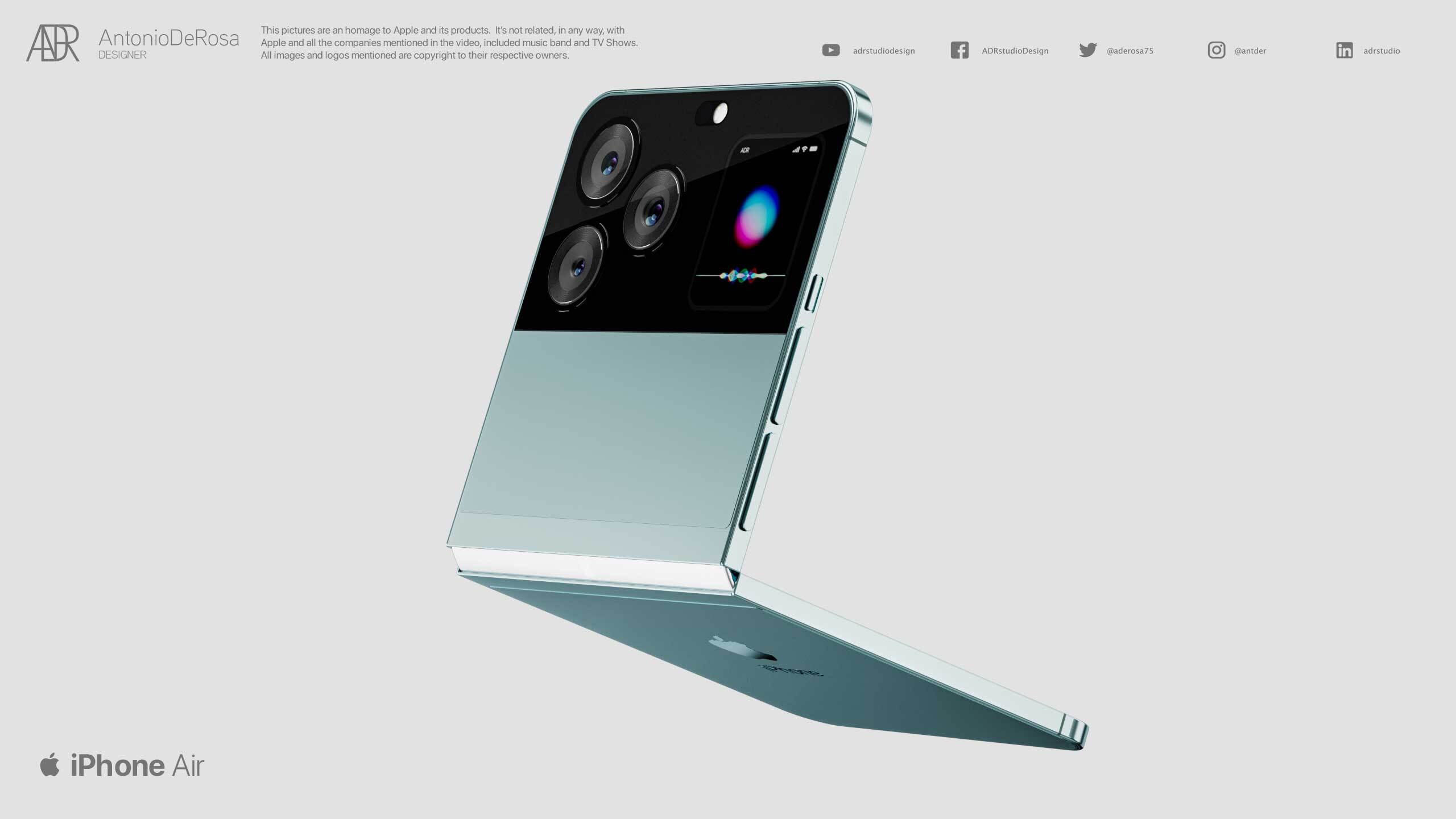
Current foldables are characterized by a crease that can appear on the main display where the phone folds in two, with some models having a more prominent crease than others. Happily, that may not be the case with the iPhone Flip, as multiple reports indicate that Samsung's display unit is supplying Apple with a foldable screen that is crease-free.
Kuo believes that the iPhone Flip will be between 9mm and 9.5mm when folded, so an opened device would be just somewhere between 4.5mm and 4.8mm thin. Instant Digital later claimed that the frame would be 4.8mm thick, not accounting for any extra thickness from the phone's "frame padding."
That compares to 8.25mm for the iPhone 16 Pro. The rumored iPhone 17 Air is supposed to be 5.5mm, so we're talking about a very slender foldable when opened. Easily the thinnest iPhone Apple has ever made.
iPhone Flip: Other specs
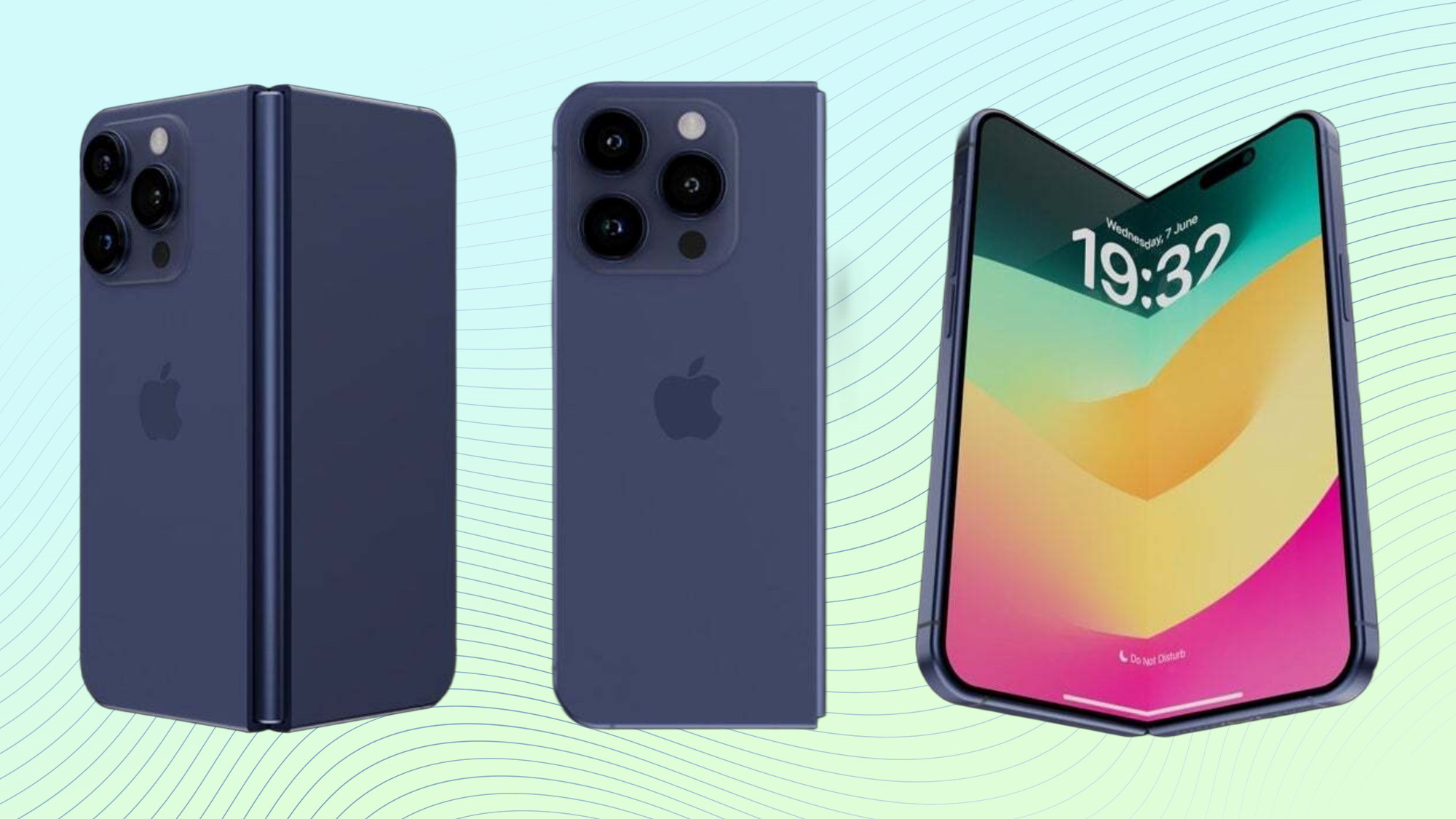
Most iPhone Flip rumors have focused on the design the phone will take and the size of its displays, with little attention on other aspects of the phone. That's understandable, given how a foldable iPhone launch is at least a year away.
For example, we don't know what silicon will power the phone. With the A19 system-on-chip likely to feature in this year's iPhone 17 release, you'd image the chipset developed for Apple's 2026 phones would also find its way into the foldable model.
Similarly, there haven't been many rumors about cameras, save for a post on the Weibo microblogging site in China. That report claims the iPhone Flip will have an under-display camera, much like the Galaxy Z Fold 6 does.
Another blog post details potential ways Apple can offer a thin phone that still delivers sufficient battery life. Apparently, it involves the display driver IC (DDI) that converts digital signals from the processor into analog ones for controlling display pixels. Apple is looking to make that run more efficiently, putting less of a drain on the phone's battery.
As for the battery itself, reports suggest we're looking at something in the 5,000 to 5,500 mAh range. Not only is that significantly larger than any other iPhone, it would be on par with the likes of the Pixel 9 Pro Fold
As for software, we'd assume a foldable iPhone would run on iOS, shipping with whatever the latest version is at the time it appears. But we would also assume Apple would tweak its iPhone software to make better use of the folding body. In fact iOS 27 is allegedly being designed with foldable screens in mind — allowing iPhone software to adapt to the changing screen requirements.
iPhone Flip: The competition
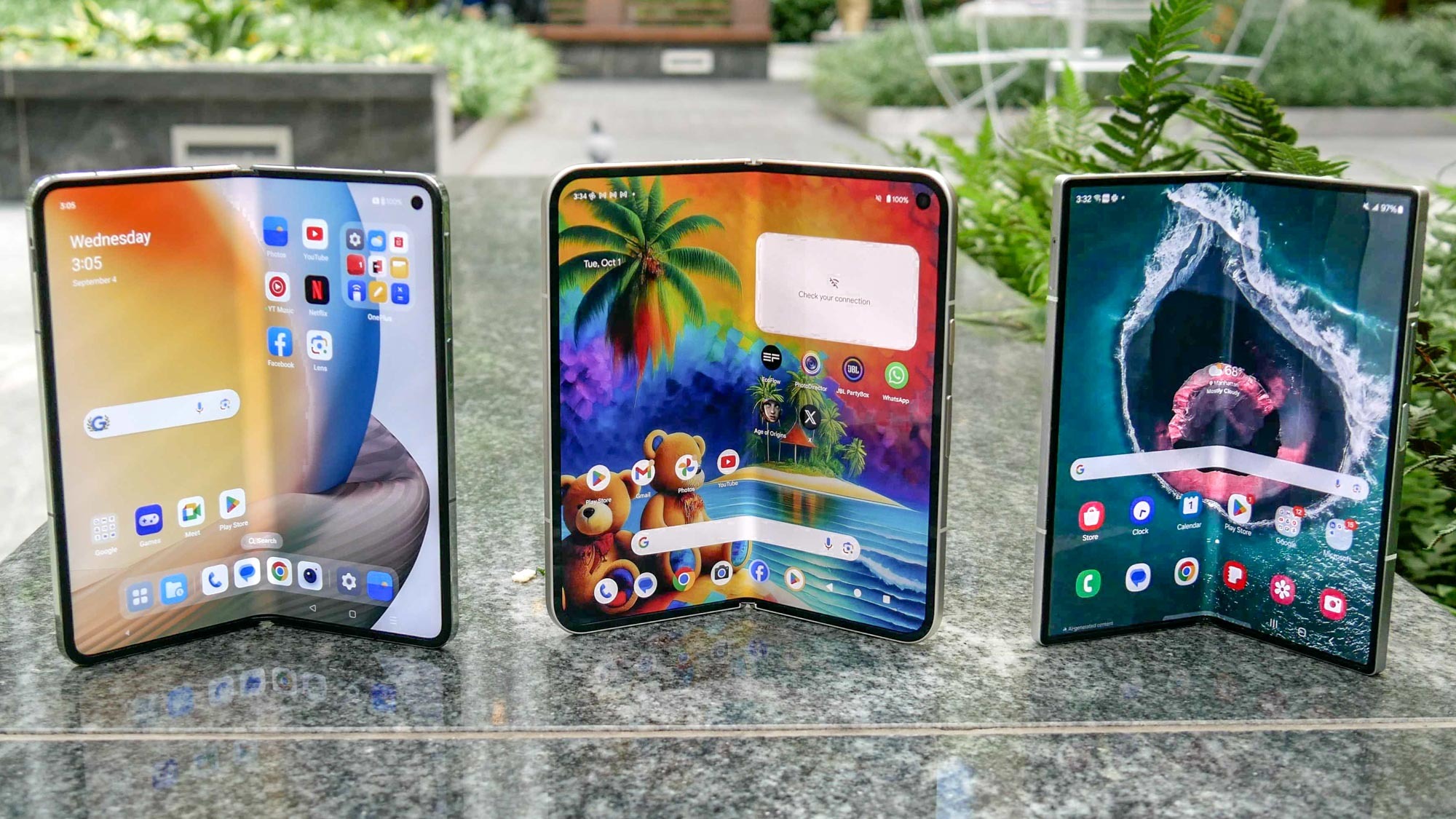
If the iPhone Flip doesn't arrive until 2026, Apple will certainly be giving its rivals even more of a head start on the foldable phone front. Samsung is now up to its seventh version of the Galaxy Z Fold and there's a new Galaxy Z Flip, too.
The foldable market has expanded beyond just Samsung, too. We're expecting a Pixel 10 Pro Fold on August 20 and while OnePlus has delayed its OnePlus Open successor, a new version could arrive before we get a glimpse of an iPhone Flip or iPhone Fold
In other words, Apple is going to have to offer something unique to stand out from a crowded field full of competitors who've had the chance to refine their designs. Then again, that hasn't been an issue from Apple in the past.
Apple has a history of instituting major change in the mobile market with every release: the abandonment of the headphone jack, elimination of bezels and adoption of the notch were all trends kicked off by iPhones. And although 5G handsets are more common than ever, 2020's iPhone 12 likely served as most people's introduction to 5G.
Ultimately, foldable tech and the smartphone industry at large has a lot riding on how Apple approaches the dream of an iPhone that folds.







